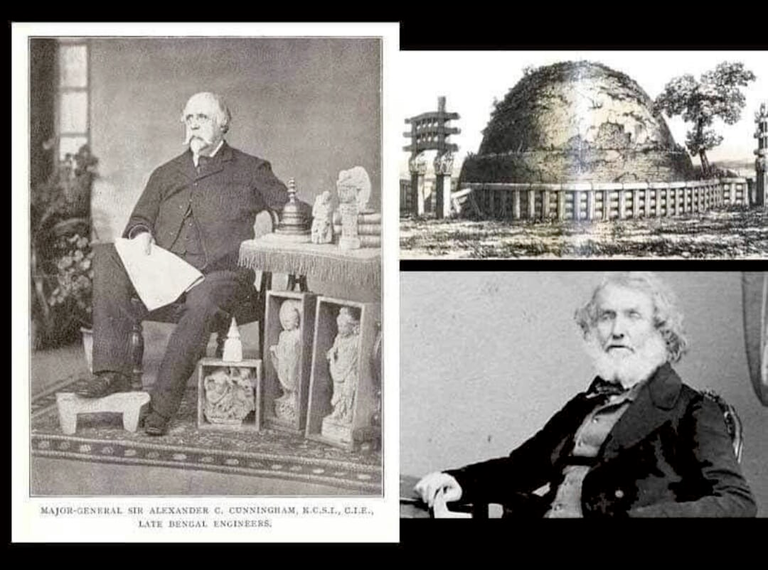Father of Archaeological Survey of India Sir Alexander Cunningham:
He was a great contributor to India and especially Buddhists, Buddhism, it's ancient heritage and monuments. He was a pioneer in the archaeological survey of modern India.
He was a British army officer and archaeologist who excavated many sites in India including Sarnath and Sanchi and served as the first director of the Archaeological Survey of India.

In November 1861, after his retirement from the army, Cunningham sent a memorandum to Lord Tin Tin recommending the establishment of the Archaeological Survey of India. Canning accepted the recommendation and was appointed director of the Cunningham Survey. In 1885, Cunningham retired from the post and returned to England.
Between 1861 and 1885, he made innumerable discoveries of coins, inscriptions, sculptures and architecture. In the process he laid the foundation for the study of ancient Indian history and Indian epigraphy, numismatics, art and architecture. He was a true pioneer. However, his most important contribution was to identify the long-lost cities of India - Pundranagara, one of the most interesting in Bengal. It is remarkable how many ancient Indian sites he identified.
Perhaps his greatest contribution was the listing of innumerable places across North India. For almost half a century, Cunningham was an icon of Indian archaeology. The student of Indian history and archeology knows only that he owes a great debt to the untiring labors of this remarkable man. Whatever branch of ancient Indian history he chooses to study, he cannot proceed without knowing Cunningham's works.
With the establishment of the Survey a new phase opened in Indian epigraphic art, which reached its climax with the publication of his Asoka Inscriptions (Calcutta, 1877). The 27 or so major inscriptions in Fleet's Corpus Inscriptionum Indicarum are Cunningham's discoveries. He found a very large number of inscriptions, and when deciphered - many of them by Cunningham himself - these helped to illuminate a dark corner of Indian history.
The same goes for coins. He was always the greatest collector and he discovered many new types and varieties. After Prinsep's departure, writing on Indian coins was almost monopolized by Cunningham for many years. He gave us the first chronological framework of ancient Indian coin series. Alexander's Successors in the East His writings are the only complete accounts of the Indo-Greek coin series and testify to the great knowledge and skill of their author. No writer on Indian coins can hope to undertake a scholarly study without consulting Cunningham's works.